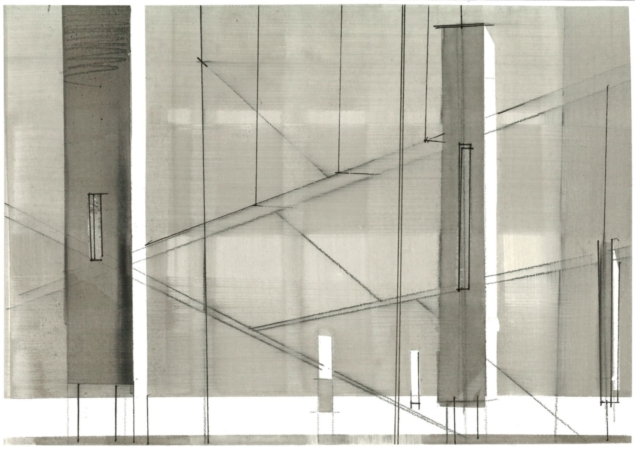The second concert in The Season of Phantasmal Peace series at the House of Culture will feature Schubert’s famous vocal cycle, which is set to poems by Wilhelm Müller.
Winterreise
- Date:
- 18 Sep 2024,
20:00–21:30
- Age restrictions
- 12+
Franz Schubert (1797–1828)
Winterreise, D 911
Vocal cycle to poems by Wilhelm Müller
Performed by
Gustav Mahler took inspiration for his First Symphony, which opened The Season of Phantasmal Peace series, from the prose of the German writer Jean Paul. His novel Selina: Or, Talks about Immortality (1827) coined the term “Weltschmerz” (literally, “world sorrow”) to express a mood of disillusionment with the world and its values and the acknowledgement that ideals were unattainable. Franz Schubert completed his vocal cycle Winterreise (“Winter Journey”) in the same year. Working on the cycle a few months before his death and in a state of profound melancholy, the Austrian composer created one of the greatest works of the vocal repertoire.
Natalia Buklaga mezzo-soprano
Sergey Kasprov piano

Illustration: Danila Travin
Schubert transforms the concert platform into the stage of a vocal-instrumental theatre, without external action but akin to mono-opera in terms of dramatic expression. The composer takes the poems and the name of his cycle from a collection by the Romantic poet Wilhelm Müller (1794–1827), which was inspired by Müller’s unrequited love for the writer Louise Maria Hansel. However, the curse of unrequited love is only one of the motifs of Winterreise. Schubert makes compositional moves that were radical for his time, changing the order of Müller’s poems, eliminating narrative, coherent plot, and temporal and spatial sequence. The wanderings of the lyrical hero have neither beginning nor end, and each of the songs is like a chapter from a poetic treatise on a broken world: the once integral reality that the hero of Winterreise remembers has shattered into twenty-four fragments.
The subject of this “cycle of eerie songs,” as the composer himself called them, is the protagonist’s gradual transition from reality to timelessness. The unmediated pain which they express, and Schubert’s motif of man’s existential helplessness in the face of life lend Winterreise an affinity with twentieth-century art. It is surely no coincidence that the English singer, Ian Bostridge—one of the most inspired performers of Schubert’s vocal lyrics—compared the cycle to the dramaturgy of Samuel Beckett.
Natalia Buklaga (b. 1979, Perm) studied singing at the Perm State Institute of Culture and is a soloist at the Perm Opera and Ballet Theatre as well as the Ural Opera (Ekaterinburg). She took part in the recording of Igor Stravinsky’s Les noces under the baton of Teodor Currentzis for Sony Classical (2013). She performed the role of the Pilgrim in the Russian premiere of the opera Love from Afar by the Finnish composer Kaija Saariaho (Ural Opera, 2021). Natalia has been nominated for Russia’s Golden Mask National Theatre Award on four occasions (2013, 2015, 2021, 2023). She tours regularly in Ireland, Greece, and Spain.
Sergey Kasprov (b. 1979, Moscow) is a pianist, harpsichordist and organist. He studied historical performance on keyboard instruments at the Moscow Conservatory under Alexei Lyubimov and organ under Alexei Parshin. He completed postgraduate studies as a pianist, also at the Moscow Conservatory, and trained at Schola Cantorum in Paris under Igor Lazko. In 2005–2007, he was awarded a special prize at the International Competition for Young Pianists in Memory of Vladimir Horowitz in Geneva, the Grand Prix at the Maria Yudina International Competition for Young Pianists in Moscow, and the first prize at the Rubinstein and Scriabin competitions in Paris. He is a regular participant of piano festivals in Europe and Russia, including La Roque-d’Anthéron (France), Klarafestival (Belgium), Chopin and His Europe (Poland), Arts Square (Saint Petersburg), December Evenings, and Antiquarium (Moscow).
You can buy a ticket to this concert in advance at a discount. Ticket prices will increase closer to the date of the event.
9–27 Aug: 1700 rubles
28 Aug—5 Sep: 1800 rubles
6–10 Sep: 1900 rubles
11–18 Sep: 2000 rubles
The cost of a discounted ticket is always 900 rubles.

